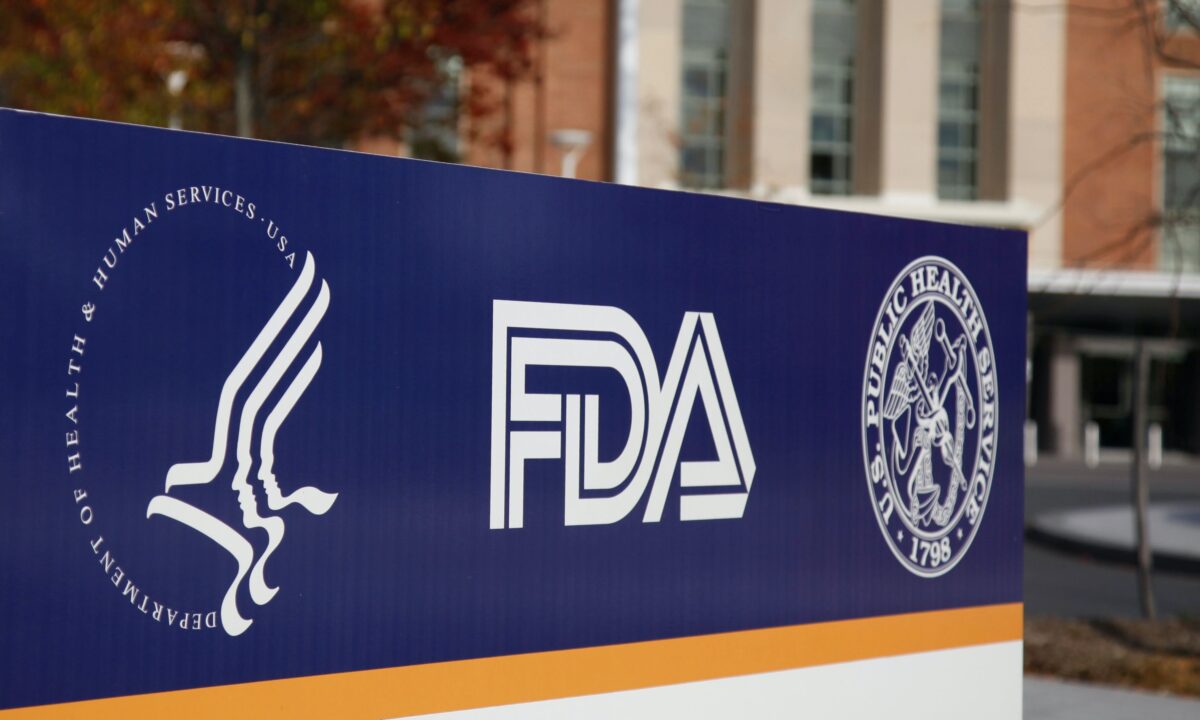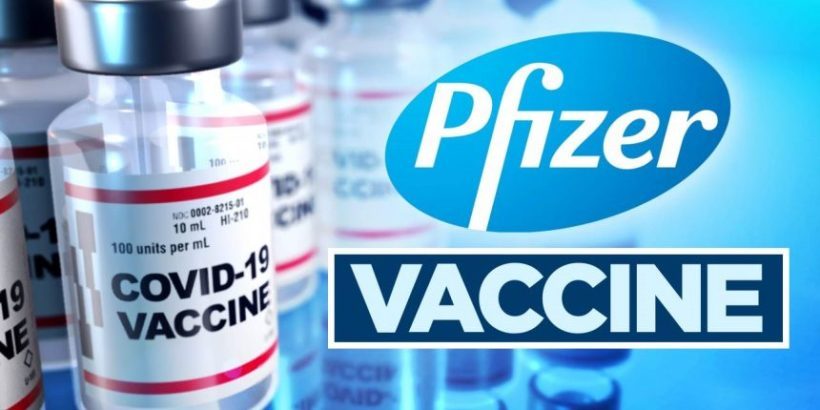Agency says statistical modeling suggests benefits outweigh risks of vaccine-related heart inflammation
October 23, 2021 By ~
The Food and Drug Administration (FDA) said in a report on Friday that Pfizer-BioNTech’s COVID-19 vaccine meets the agency’s criteria for the immune response it generated in children aged 5 to 11; the agency also said that the vaccine would likely provide more benefits than risks in most scenarios.
The FDA briefing document was published ahead of a scheduled meeting of a panel of outside experts on Oct. 26. Members of the Vaccines and Related Biological Products Advisory Committee are to vote on that day on whether they would recommend the FDA to authorize the shots.
In the document, the FDA acknowledged results from Pfizer released earlier in the day that said the two-dose vaccine was nearly 90.7 percent effective against the CCP (Chinese Communist Party) virus in a clinical trial of the children aged 5–11.
Pfizer’s clinical trial was not primarily designed to measure efficacy against the virus. The trial compared the amount of neutralizing antibodies induced by the vaccine in the children to the response of older recipients in their adult trial. Based on those results, Pfizer-BioNTech said last month that their COVID-19 vaccine induced a robust immune response in the children.
The FDA noted no new or unexpected side effects. Adverse effects in the Pfizer trial included sore arms, fever, or achiness. The FDA said the study wasn’t large enough to detect extremely rare side effects, including myocarditis, a type of heart inflammation that occasionally occurs after the second dose.
Benefits Outweigh Risks: FDA
The FDA used statistical modeling to analyze whether the benefits would outweigh risks from the Pfizer vaccine for the young age group. It found that, over a 6-month period, the vaccine for children aged 5–11 provided more benefits than risks in six scenarios of varying COVID-19 incidence.
The modeling looked at predicted numbers per million of preventable symptomatic COVID-19 cases, hospitalizations, intensive care unit (ICU) admissions, and deaths. It compared those figures with predicted numbers per million of vaccine-associated excess myocarditis/pericarditis cases, hospitalizations, ICU admissions, and deaths attributable to myocarditis/pericarditis.
The model used assumes a vaccine efficacy of 70 percent against contracting COVID-19 and 80 percent against COVID-19 associated hospitalization, “based on real-world data for ages 20+ years during circulation of the Delta variant.”
The FDA said its model “conservatively assumed” that the risk of myocarditis/pericarditis linked to the 10 µg dose in children aged 5–11 would be the same as the estimated risk linked to the 30 µg dose in those aged 12–15 from Optum healthcare’s claims database.
“While benefits of vaccination were highly dependent on COVID-19 incidence, the overall analysis predicted that the numbers of clinically significant COVID-19-related outcomes prevented would clearly outweigh the numbers of vaccine-associated excess myocarditis cases over a range of assumptions for COVID-19 incidence,” stated the FDA in its report.
It noted that in one scenario where the incidence of COVID-19 is the lowest, there would be more hospitalizations from vaccine-related myocarditis/pericarditis than from COVID-19 for males and for both sexes combined.
However, the FDA noted, “in consideration of the different clinical implications of hospitalization for COVID-19 versus hospitalization for vaccine-associated myocarditis/pericarditis, and benefits related to prevention of non-hospitalized cases of COVID-19 with significant morbidity, the overall benefits of the vaccine may still outweigh the risks under this lowest incidence scenario.”

Both the mRNA-based Pfizer-BioNTech and Moderna vaccines have been linked to rare cases of heart inflammation—myocarditis or pericarditis—especially in young men.
Around 190 million people in the United States are fully vaccinated. Among them, more than 11 million children aged 12–17 have received the Pfizer vaccine.
Pfizer in early October formally asked the FDA to expand the authorization for its COVID-19 vaccine to children aged 5–11. If the FDA grants the authorization, it would be the first COVID-19 vaccine for the age group. Thereafter, a group of advisers to the Centers for Disease Control and Prevention (CDC) would meet on Nov. 2–3 to make recommendations to the agency on how the shots should be administered. Shots could then be available in the United States in early November.
Vaccine manufacturers are immune from liability for any adverse reactions unless there’s “willful misconduct” involved. Vaccine providers are required to report any serious adverse effects or vaccination administration errors to VAERS, hosted by the U.S. Department of Health and Human Services.
The federal government has a countermeasures program that can compensate eligible persons who suffer serious injury from approved vaccines. But the burden of proof has proven a challenging process.
Reuters and The Associated Press contributed to this report.
C-VINE News Volunteer Citizen Journalists

Please click and bookmark:
C-VINE Social Media Channels
*C-VINE.Com, https://c-vine.com
*C-VINE-Telegram, https://t.me/CVINENEWS
*C-VINE-MeWe, https://mewe.com/join/C-VINE
*C-VINE-Rumble, https://rumble.com/user/CVINE
*C-VINE YouTube Channel, https://www.youtube.com/c/CVINENewsNetwork/videos
*C-VINE Commentary & Analysis, https://www.facebook.com/groups/895771901163001/
*C-VINE Business Network, https://www.facebook.com/groups/1242625425864710
*C-VINE Natural Health News Network, https://www.facebook.com/groups/cvinehealth
*C-VINE Patriot Prayer Brigade, https://www.facebook.com/groups/4826437259486216

